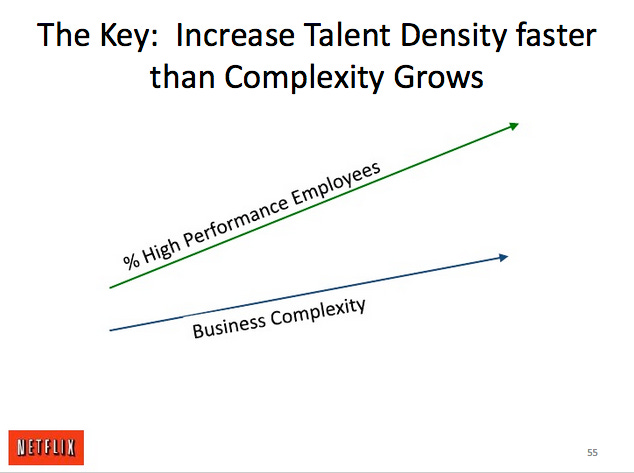Time is a Flat Circle
Nic Pizzolatto meets Andre Gide | Jack Dorsey’s Quest | Factoids | Elsewhen
Quote of the Moment
Time is a flat circle. Everything we’ve ever done or will do, we’re gonna do over and over and over again. You are reborn, but into the same life that you’ve always been born into.
| Rust Cohle, a character in True Detective by Nic Pizzolatto
One interpretation of Pizzolato’s Nietzschean statement is that we are forced to learn lessons over and over again, as Jack Dorsey might be doing. This reminds me of Andre Gide’s observation:
Everything that needs to be said has already been said. But since no one was listening, everything must be said again.
Jack Dorsey’s Quest
Jack Dorsey, the CEO at Block (which heads Square, Cash App, and Tidal) has announced some fairly aggressive changes at the company, specifically focussing on ending annual performance reviews and performance improvement plans (PIPs) for workers not measuring up to expectations.
His rhetoric suggests he thinks the organization has become bureaucratic and lazy.
In his email sent to all employees, as reported by Kali Hays:
I want us to build a culture of excellence.
This implies they don't have one now.
Excellence in service to our customers, excellence in our craft, excellence in our respective disciplines, and excellence to each other.
We want to help everyone achieve excellence here at Block. And if that's not possible for any one person, we want to acknowledge that, and part ways without delay (which is a perfectly fine and honorable outcome.)
Our current "performance management" practices do not help us achieve this. In fact, they are holding us back. Some have described them as a "denial of service attack on managers" given the time commitment versus the benefit to our people. There's also a perception that we allow people to "rest and vest" throughout the company, including poor managers who oversee great and promising individual[s.]
So, the company has developed a set of performance management processes — annual performance reviews, PIPs, and poor management practices by ‘poor managers’ — that are blocking this culture of excellence form emerging, or killed it.
He goes on to say that after the current performance review cycle the company is killing it and PIPs. Note that Dorsey announced a 10% layoff was coming a few weeks ago. Letting people go who are currently on a PIP seems to be an obvious path.
I also gravitated to his mentions of synchronous and asynchronous work:
First, this is the last "annual performance review cycle" we'll have. It's way too heavy for everyone involved and it doesn't actually help us get better. Performance should be continuously evaluated, and feedback should not be queued up for later. There are natural and asynchronous milestones that are specific to individuals and teams, like launches or product completions, that will force our leads to be more specific and personalized with feedback, promotions (which need to be dramatically simplified!), compensation, or whether to part ways immediately (instead of letting things linger). Of course, there are things like calibration across disciplines that require a synchronous action, but everything else should default to asynchronous and personalized to the individual. We're working through how this will work in practice. The People team will follow up with more details before the end of this year.
This is a push to do two things at once: to trim managerial bureaucracy (like synchronous People Operations processes); and to speed up letting underperforming people go as quickly as possible.
This is where I recalled a presentation from Netflix from 2013, which espoused similar ideas, although couched in a more principle-oriented fashion.
Reed Hastings, the CEO of Netflix, made a direct connection between the growth of companies and the ‘chaos’ that emerges when they start to enact processes as complexity grows. Businesses are motivated to apply industrial-age, slow-and-tight thinking, but it fails in an accelerated economy where agility and innovation dominate markets.
As I wrote in 2013,
Process-driven companies do well when efficiency is the fulcrum for competitiveness. But in times of fast change and a market full of innovators, that execution approach is all bad.
This turns out to be one of three bad options:
1. Become process-bound.
2. Stay creative by staying small, but therefore limit your impact and reach.
3. Avoid rules, and suffer chaos.
But he says there is a fourth way:
“Avoid chaos as you grow with ever more high performance people — not with rules:
- You can continue to mostly run informally with self-discipline, and avoid chaos
- The ‘run informally’ part is what enables and attracts creativity”
Again, as I wrote in 2013:
I love the concept introduced here: increasing talent density faster than complexity is riding the wave and staying ahead of chaos. Both trend lines can be managed: at the top, finding and producing high performance, creative, responsible people, and below, intentionally taking steps to retard the rise of complexity.
In this latter case complexity can be held back: a company can opt to focus on a few big products instead of many small ones, or avoid ‘efficiencies’ that lead to rigidity (process-bound, gain). Or, as I discussed in several other posts, the firm can intentionally accept lower cross-communication and collaboration, which requires deep consensus building. Instead, a fast-and-loose independence is viewed as central to the freedoms demanded by high performance staff.
So Hastings believes that if you have the right people, you can remain loosely coupled and stay ahead of the chaos arising from complexities. Instead of control (processes again) directing people what to do, you need to set context:
So it seems that Netflix has turned the corner into the fast-and-loose world of work, adopting a cooperative ethos in which the work of leadership is setting context, and working to remove the obstacles — like reducing complexity — so that the great people who thrive in a laissez-faire cultural milieu can accomplish great things. At Netflix a mistake made by a project team or an individual is more likely to be bad context setting by management than anything else. And — explicit in the principles that shape the company’s credo — is the notion that it is better to respond quickly to glitches arising from a mismatch between context and action than to create a culture in which people are not experimenting.
I’m sure that Dorsey is thinking in these terms even if he is not expressing them nearly as well as Hastings did. Dorsey is letting his desire for the ends that Hastings spelled out so clearly get ahead of the means he is instituting to achieve them. He’d be better talking about the strategy of talent density instead of tactics like eliminating annual performance reviews.
Dorsey would benefit — and so would Block and its people — if he espouses the autonomy and talent density principles more directly and focuses less on the bureaucratic processes he is eliminating.
Factoids
Gallup found that in 2011, 26 percent of Republican voters approved of unions. In 2023, 47 percent of Republican voters approved of unions. | Jane Coaston
…
New York State has created 1.2 million jobs over the past 10 years, but only 400,000 new homes, contributing to inflation in rent and home prices, and despair among young workers. | Cara Eckholm
New York rents have increased by 103% for one-bedrooms and by 81% for two-bedrooms since 2010. | RentData.org
NY State is failing its residents.
…
Liberty, the luxury department store in London that has a roomful of datebooks and notebooks on an upper floor as well as online sales, has seen a 22 percent increase in sales of the products in the past 18 months | Melanie Abrams
Datebooks and notebooks are coming back: a respite in a digital world?
…
Only about 350 American students are studying in China today, down from some 15,000 in 2015. | Sarah Stockman
…
More than half the world’s population lives in cities. In rich countries the share is four-fifths. | Economist
sponsor: hal9
Chat with your enterprise databases using secure generative AI and empower business users in your team to do their own data analyses in seconds.
Elsewhen
Companies are Private Governments | Stowe Boyd:
The philosopher Elizabeth Anderson is responsible for the concept that businesses run as ‘private governments’, lacking democratic principles that we expect in our ‘public governments’, made up of people we elect to office and the laws and policies we enact through them. In her book, Private Government: How Employers Rule Our Lives (and Why We Don't Talk about It), Anderson explains how we have conserved pre-democratic governance within the business as a holdover from preindustrial practice. As the publisher wrote about her book,
One in four American workers says their workplace is a “dictatorship.” Yet that number probably would be even higher if we recognized most employers for what they are—private governments with sweeping authoritarian power over our lives, on duty and off. We normally think of government as something only the state does, yet many of us are governed far more—and far more obtrusively—by the private government of the workplace.






